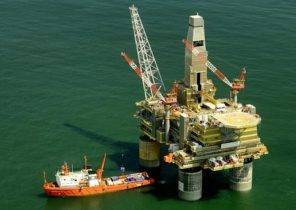For the past four years many representatives of the American foreign policy establishment have complained that the United States is losing its influence on the world stage. Like an aging athlete, looking at the faded trophies, they wistfully recall the days when the United States was far ahead of all its rivals.
They believe that the failures of the presidency of the trump and the mistakes that we made in terms of public health crisis, forced the world to finally lose faith in America. Meanwhile, such a revisionist power like China, Russia and Iran continue to gain weight in key regions in Asia, Europe and the middle East. However all these fears are not true, because the United States — even in the era of trump — remain indispensable country and the leading power in the world.
A devastating effect of the pandemic coronavirus destroyed two illusions, which has long cherished the representatives of the foreign community. The first illusion was the fact that the challenges that brought with it a coronavirus, eliminate competition and will contribute to cooperation — that is, that they encourage the formation of a global Alliance to combat this disease. The second illusion is the belief that in the struggle with the virus, countries like Russia, China and Iran will reduce the level of its hostility towards international norms.
Meanwhile, currently, the opposite occurs. Despite the damage that was inflicted by Western sanctions, now exacerbated under the influence of coronavirus and short oil war with Saudi Arabia, Russia has shown no desire to leave the territory of Ukraine, to refrain from interference in Western elections (including the election campaign, which takes place in the United States at the moment) and to end its presence in Syria, Libya and Venezuela. On the contrary, Russia has used the destabilization of the pandemic to more actively challenge America’s interests around the world. China took advantage of the moment to expand its claims and presence in disputed Maritime territories in the South China sea and to strengthen control over Hong Kong and Xinjiang. Iran is the weakest of the three revisionist States continued to support the dynasty of the Assad regime in Syria and Shiite militants in Iraq.
If we believe the statements, sounding from these three modes, those terrible shocks that in 2020 fell upon the Western economy and society, became for Moscow, Beijing and Tehran only temporary hindrances — they managed to limit the extent of the damage, and they have already embarked on the road to recovery. No wonder news agencies in these countries have focused on the many challenges facing the West in its fight against the coronavirus, and are silent on the losses incurred by their own country.
However, the real picture remains disappointing. Today, Russia is weak as never before with ever since came to power Vladimir Putin. In 2020 the Russian economy will shrink by 5%, and the Ministry of economy openly admits that the country’s GDP growth will begin to recover only after 2022. The Russian budget is balanced at the price for Urals oil at 42 dollars a barrel, but a glut of the energy market combined with falling global demand due to the pandemic leads to the fact that over the next few years, the Russian government will have to be reconciled to the budget deficit and to empty their reserves, which may end in 2024.
Meanwhile, the Russian public already tired of the 20-year Putin’s rule and economic stagnation, and it becomes a cause of growing discontent among Russians, especially among young people. Large-scale “national projects”, which, it was hoped Putin was to give a boost to the economy, we have to postpone now the deadline is postponed to 2030, instead of 2024. Due to stagnation in the economy and growth of budget deficit the price of a new arms race and of military campaigns on the territory of foreign States may be too high, which will limit the ability of Moscow to carry out its interventions around the world.
The Chinese leadership says very nice, but the agreement that legitimizes the single-party system that guarantees economic growth and stability, was under threat. The pandemic triggered the first slowdown in the Chinese economy since 1976, however, it is not the reason long-term problems that are brewing behind the shiny curtain of China.
The rising level of debt, the shadow economy, construction and infrastructure projects inside and outside of China, which attract excess workforce and capacity, but do not contribute to economic growth, the bubble in the property market, rising unemployment — all this points to the vulnerability of the Chinese economy and its ability to increase the military potential and to use economic tools to influence other countries.
Indeed, Chinese foreign investments, the volume of which decreased in 2019, virtually dried up after the start of the pandemic, especially now that the government is concerned about the outflow of capital from the country. Moreover, low growth could trigger social unrest, which will become a serious test for the increasingly fragile political system of China.
The Islamic Republic, which has always been the weakest of the three revisionist powers, suffered from us sanctions. The volume of Iranian oil exports dropped from 2.5 million barrels a day to 100 thousand barrels. The country’s economy is shrinking, its residents have expressed dissatisfaction, and its government made a lot of mistakes at the initial stage of the pandemic, which caused heavy damage to Iran. The regime continues to spend money on their Imperial adventure, and provoke the growing discontent in society. Meanwhile, the widely publicized Iranian nuclear program recently suffered another blow — deployment of advanced centrifuges was delayed for one or even two years. Iran has paid a very high price for its nuclear program, which has not yet yielded any significant results.
The United States has also seriously affected by the new virus, and the administration, trump is hardly a reliable custodian of our alliances. But America, even when at the head of it is incompetent, the team is the owner of the world’s reserve currency, and its economic and financial system remain pillars of the global system. Despite the wounds inflicted on America itself, at its disposal is still regional partnerships that allow Washington to create a coalition capable of balancing the ambitions of Russia, China and Iran.
Moreover, the pandemic has brought to the agenda such issues not previously discussed. The United States, Japan and European partners of America talking about how to decouple their economies from China and to reorient their supply chain. If in 2017 President XI Jinping’s considered responsible world leader who will be able to manage the international liberal order is Donald trump, today no longer views China as a soft power — especially after the events in Hong Kong and Xinjiang. Russia is not included in the list of responsible States. Iran can not get rid of sanctions, and now even the Europeans are glad that the nuclear issue cannot be resolved without taking into account the aggressive actions of Tehran in the middle East.
Today the revisionist powers were not only on the verge of having to displace the United States, but has managed to create what was not created by the years of threats and bluster America, regional partners, is ready to rise and receive calls. No wonder that in private conversations with NATO officials often share my thoughts in the spirit of “thank God for Putin,” because it is the actions of Russia became the most important factor, forcing the Alliance members to increase defense spending and even to agree to the deployment of forces in Eastern Europe. Aggressive behavior of China in the South China sea and along the disputed border with India has strengthened the conviction that in order to deter Beijing’s need for regional cooperation and closer ties with the United States in the field of security. In the middle East Gulf countries and Israel are moving closer to confront Iranian aggression.
None of this means that America now operates at optimal speed. America is a superpower, which still allows a lot of mistakes in combating the public health crisis. Its policies are inconsistent, and its Treasury is empty. But in real life, to escape the shark, you don’t need to be a great swimmer you need to swim faster than she. While the United States is significantly ahead of all the sharks in the ocean.
Nikolas Gvosdev is Professor of the naval College, USA and editor of Orbis.







